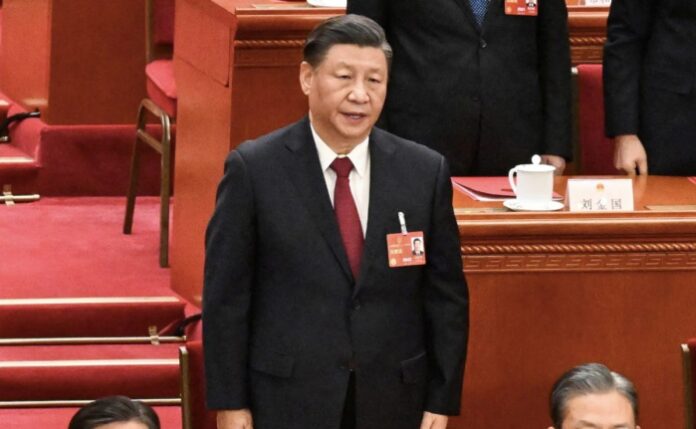| Translate This News In |
|---|
On April 21, 2022, Chinese President Xi Jinping announced the idea of creating a “indivisible security community” through the proposal of the Global Security Initiative (GSI), building on the trend and objective of exporting the Chinese governance model, according to Tokyo Review.
Building “a balanced, effective, and sustainable security architecture” was a theme of Xi’s speech. Six months later, the GSI is still wrapped in mystery and few specifics have been made public. However, since the beginning of the venture, it has frequently appeared in Chinese diplomatic language, indicating a more significant strategic intention.
The discussion within Japan about its pacifist constitution is taking on a more serious tone as Prime Minister Fumio Kishida promises to improve Japan’s naval and military capabilities. This is clear from Tokyo’s recent announcement of its historic USD 320 billion military build-ups, which would give it missiles capable of hitting China and position it for a protracted war, according to the Tokyo Review.
On the other hand, a fundamental tenet of its revised national security strategy (NSS), which was unveiled on December 16, 2022, is the recognition that China presents a “Unprecedented and the greatest strategic challenge in ensuring the peace and security of Japan.”
Aiming to make Japan a strong military force to help balance China, the United States has strengthened its alliance with Tokyo in light of these events in Japan.
Its increasing concerns over a “Asian NATO” led to the GSI concept, which has the theme of indivisible security and aims to counteract US actions. In contrast to the US’ “zero-sum game and “bloc politics,” Xi has stated he wants to promote the concept of sustaining “true multilateralism” through the GSI.
Kishida must consider the idea in light of its potential strategic applications because he oversaw Japan’s aggressive reaction to Russia in support of Ukraine. Seikei Bunri of Japan has been pushed to its breaking point after having to juggle economic ties with China around its incursion operations.
As it becomes a dedicated Chinese counter to expanding democratic countries-led minilateral security arrangements like the Quad, AUKUS, and trilaterals like Japan-America-India, a Chinese foreign power push through the GSI focused on creating new security architectures will only threaten Japanese national interests and regional power balance. (JAI).
Through GSI, Xi has, in Yi’s words, “contributed to China’s vision to reduce the peace deficit facing humanity and provided China’s input to meeting global security challenges.”
Tokyo acknowledges that in spite of praising “true multilateralism,” China has unmistakably pursued unilateral “development activities of natural resources in the East China Sea.” Chinese actions in the Himalayas and the Two China Seas run counter to Beijing’s assertions that it opposes “building national security on the basis of insecurity in other countries.”
the “wanton use of unilateral sanctions and long-arm jurisdiction,” as well as defending “the international order supported by international law,” according to Tokyo Review.
Prior to taking assertive action in sensitive areas, Beijing must first legitimise its expansionist policy through actionable initiatives. China can continue to defend its actions in the Taiwan Strait and other regions that are strategically significant for Japan under the pretext of “indivisible security.”
In Chinese diplomacy and foreign policy going forward, the GSI will continue to gain significance. The GSI has a great deal of potential to boost Xi’s “strongman polity” image domestically because it positions China as a pioneer in creating a new global security architecture by providing Chinese solutions to international security problems and eradicating “the peace deficit,” according to Tokyo Review.
China’s diplomatic outlook and preferences when it comes to handling strategic alliances are further reflected by the GSI’s framework’s ambiguity at the moment. China could, for instance, make use of its alliances with multilateral organisations like the SCO, BRICS, Forum on China-Africa Cooperation (FOCAC), and China-Community of Latin American and Caribbean States (CELAC) by promising the development of a uniform multilateral security framework via GSI.
On the GSI, Japan has not yet released any formal statements. But even as Kishida’s political influence diminishes, tackling issues like this should be treated with increasing gravity. To successfully counter and limit the success of the GSI, Japan, a dependable regional power and aid provider, must forge consensus prior to the initiative’s active implementation.


















